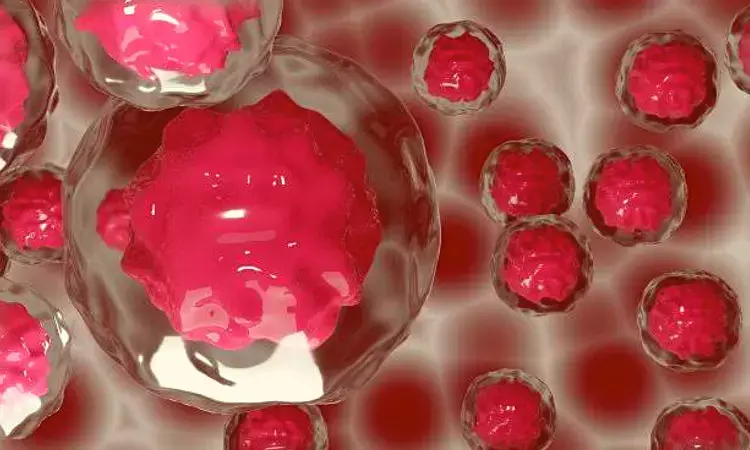- Home
- Medical news & Guidelines
- Anesthesiology
- Cardiology and CTVS
- Critical Care
- Dentistry
- Dermatology
- Diabetes and Endocrinology
- ENT
- Gastroenterology
- Medicine
- Nephrology
- Neurology
- Obstretics-Gynaecology
- Oncology
- Ophthalmology
- Orthopaedics
- Pediatrics-Neonatology
- Psychiatry
- Pulmonology
- Radiology
- Surgery
- Urology
- Laboratory Medicine
- Diet
- Nursing
- Paramedical
- Physiotherapy
- Health news
- Fact Check
- Bone Health Fact Check
- Brain Health Fact Check
- Cancer Related Fact Check
- Child Care Fact Check
- Dental and oral health fact check
- Diabetes and metabolic health fact check
- Diet and Nutrition Fact Check
- Eye and ENT Care Fact Check
- Fitness fact check
- Gut health fact check
- Heart health fact check
- Kidney health fact check
- Medical education fact check
- Men's health fact check
- Respiratory fact check
- Skin and hair care fact check
- Vaccine and Immunization fact check
- Women's health fact check
- AYUSH
- State News
- Andaman and Nicobar Islands
- Andhra Pradesh
- Arunachal Pradesh
- Assam
- Bihar
- Chandigarh
- Chattisgarh
- Dadra and Nagar Haveli
- Daman and Diu
- Delhi
- Goa
- Gujarat
- Haryana
- Himachal Pradesh
- Jammu & Kashmir
- Jharkhand
- Karnataka
- Kerala
- Ladakh
- Lakshadweep
- Madhya Pradesh
- Maharashtra
- Manipur
- Meghalaya
- Mizoram
- Nagaland
- Odisha
- Puducherry
- Punjab
- Rajasthan
- Sikkim
- Tamil Nadu
- Telangana
- Tripura
- Uttar Pradesh
- Uttrakhand
- West Bengal
- Medical Education
- Industry
Malaria drug could combat chemotherapy-resistant head and neck cancers

PITTSBURGH - A new study suggests that the malaria drug hydroxychloroquine inhibits pathways that drive resistance to the chemotherapy agent cisplatin in head and neck cancers and restores tumor-killing effects of cisplatin in animal models.
The findings, published today in Proceedings of the National Academy of Sciences by University of Pittsburgh and UPMC scientists, pave the way for a clinical trial that combines cisplatin and hydroxychloroquine to treat chemotherapy-resistant head and neck cancers.
"When caring for patients with head and neck cancers, I often see chemotherapy fail. Cisplatin is a very important chemotherapy drug, but tumor resistance to cisplatin is a huge problem," said co-senior author Umamaheswar Duvvuri, M.D., Ph.D., head and neck surgeon at UPMC Hillman Cancer Center and professor of otolaryngology in Pitt's School of Medicine. "My lab is interested in understanding the mechanisms of resistance so that we can find better ways to treat these patients."
Previous research showed that a protein called TMEM16A is linked with cisplatin resistance in patient tumors. Overexpression of this protein, which occurs in about 30% of head and neck cancers, is also associated with decreased survival.
TMEM16A belongs to a group of proteins called ion channels. Straddling the cell's outer envelope, these proteins provide a passageway to chloride ions, which regulate muscle and nerve activation and transport of salt and water. Because impaired chloride transport is typically linked with neurological and kidney diseases such as epilepsy, cystic fibrosis and kidney stones, Duvvuri was surprised by the link between TMEM16A and cancer.
"It's always been a bit of a puzzle as to why an ion channel is upregulated in cancer," he said. "This research provides important clues towards solving this puzzle."
The new study suggests that TMEM16A promotes expulsion of cisplatin in cellular compartments called lysosomes. In a healthy cell, lysosomes act like a recycling and waste disposal system, breaking down molecules for reuse and expelling cellular detritus.
In tumors that overexpress TMEM16A, this protein drives a novel signaling pathway, boosting the production of lysosomes, which sequester and expel cisplatin from the cell, according to first author Avani Vyas, Ph.D., postdoctoral associate at Pitt.
"We show that cancer cells have an active mechanism to discard chemotherapeutic drugs," added co-senior author Kirill Kiselyov, Ph.D., associate professor of biological sciences at Pitt. "After dissecting this process on a fundamental level and identifying TMEM16A as a critical node, the next step was to test whether disrupting this process with hydroxychloroquine could have translational potential."
Hydroxychloroquine is an anti-malarial agent that inhibits lysosomal function. To evaluate its potential to treat cisplatin-resistant cancers, the team first implanted human cancer cells onto the membrane surrounding the embryo in fertilized chicken eggs.
They found that eggs treated with both hydroxychloroquine and cisplatin had greater tumor cell death than those treated with cisplatin alone.
Similarly, in mice with tumors derived from cisplatin-resistant human cancer cells, the combination of hydroxychloroquine and cisplatin slowed tumor growth more than either compound alone.
"These experiments suggest that hydroxychloroquine has a synergistic effect with cisplatin," explained Duvvuri. "This is relevant for patients because repurposing hydroxychloroquine, which is an existing drug, will allow us to translate these findings to the clinic much faster than we could with a novel compound."
The researchers are now designing a phase II clinical trial to treat head and neck cancer patients with a combination of hydroxychloroquine and cisplatin.
https://www.pnas.org/doi/full/10.1073/pnas.2100670119
hydroxychloroquine inhibits,cisplatin,Umamaheswar Duvvuri,UPMC Hillman Cancer Center,Pitt's School of Medicine,kidney stones,
Hina Zahid Joined Medical Dialogue in 2017 with a passion to work as a Reporter. She coordinates with various national and international journals and association and covers all the stories related to Medical guidelines, Medical Journals, rare medical surgeries as well as all the updates in the medical field. Email: editorial@medicaldialogues.in. Contact no. 011-43720751
Dr Kamal Kant Kohli-MBBS, DTCD- a chest specialist with more than 30 years of practice and a flair for writing clinical articles, Dr Kamal Kant Kohli joined Medical Dialogues as a Chief Editor of Medical News. Besides writing articles, as an editor, he proofreads and verifies all the medical content published on Medical Dialogues including those coming from journals, studies,medical conferences,guidelines etc. Email: drkohli@medicaldialogues.in. Contact no. 011-43720751


